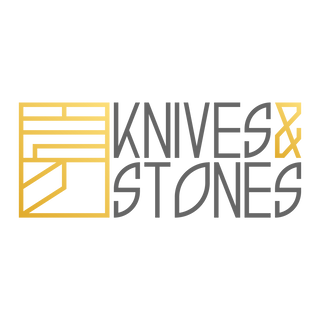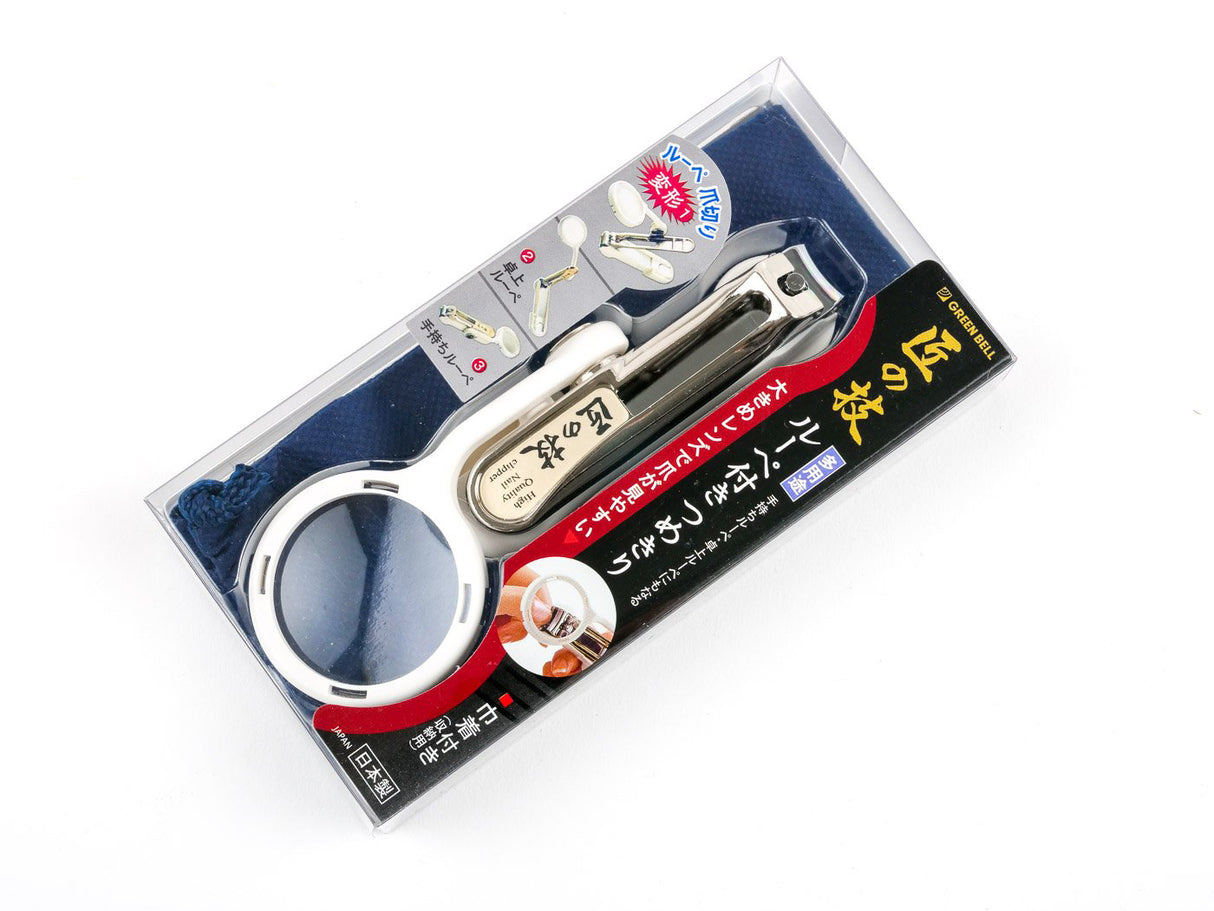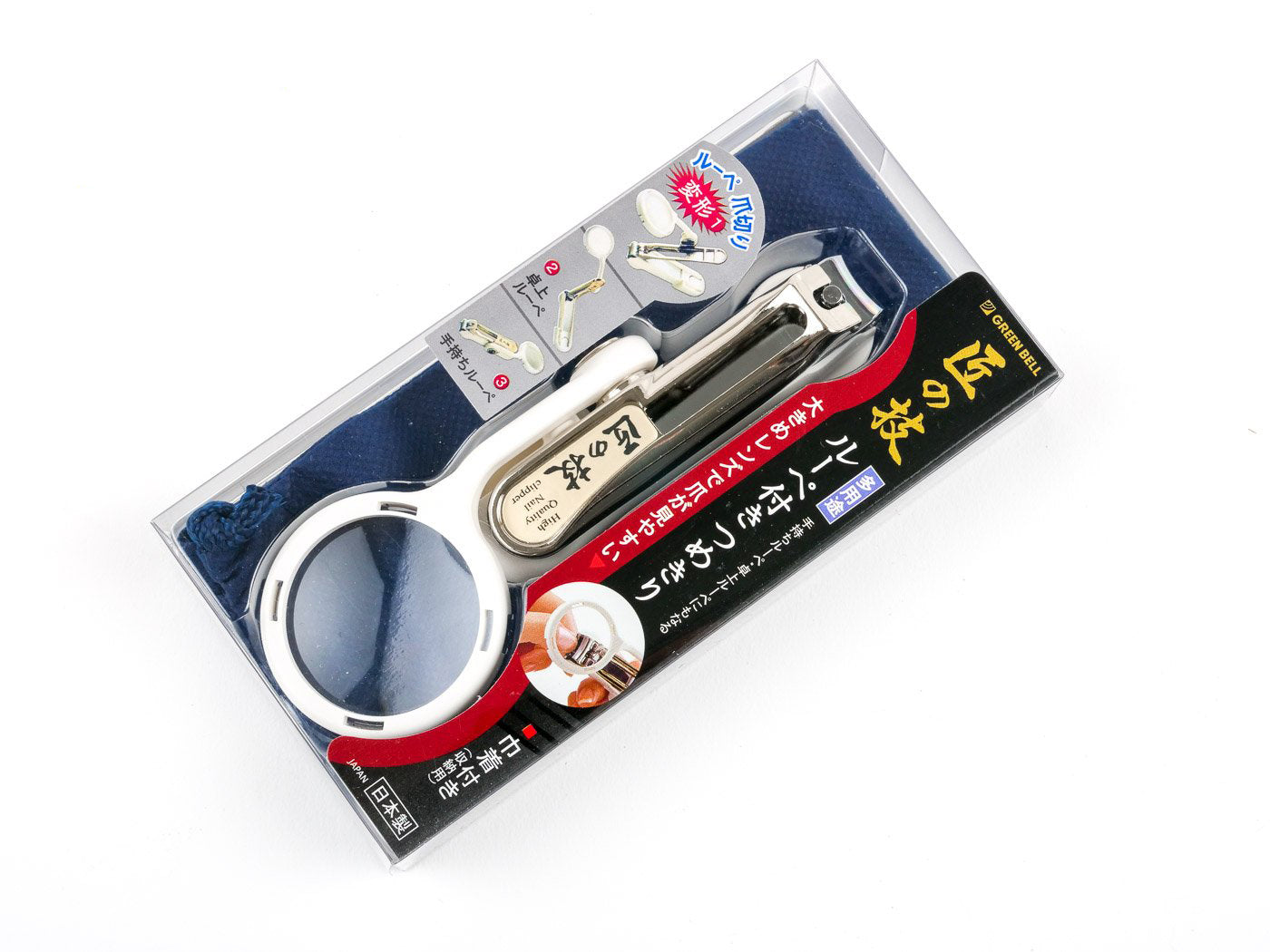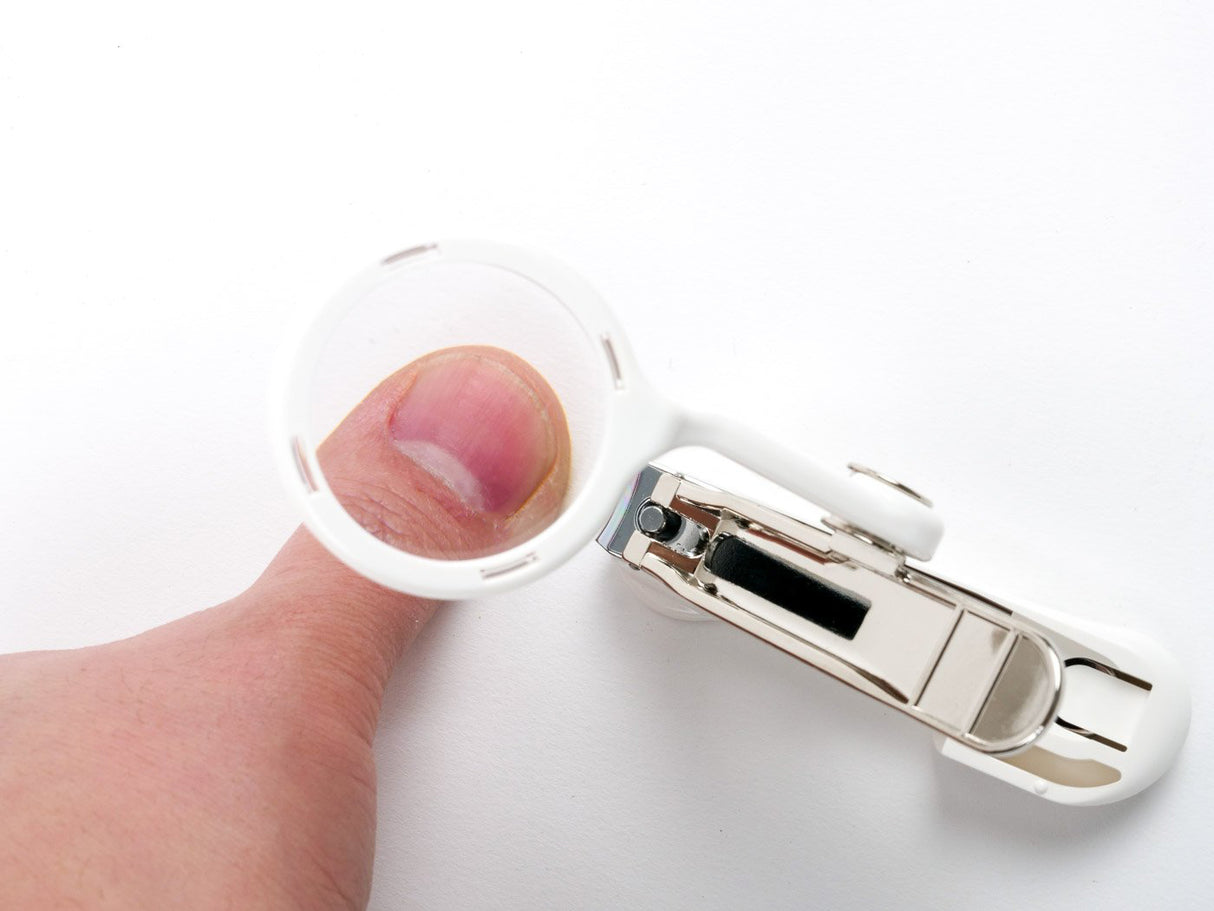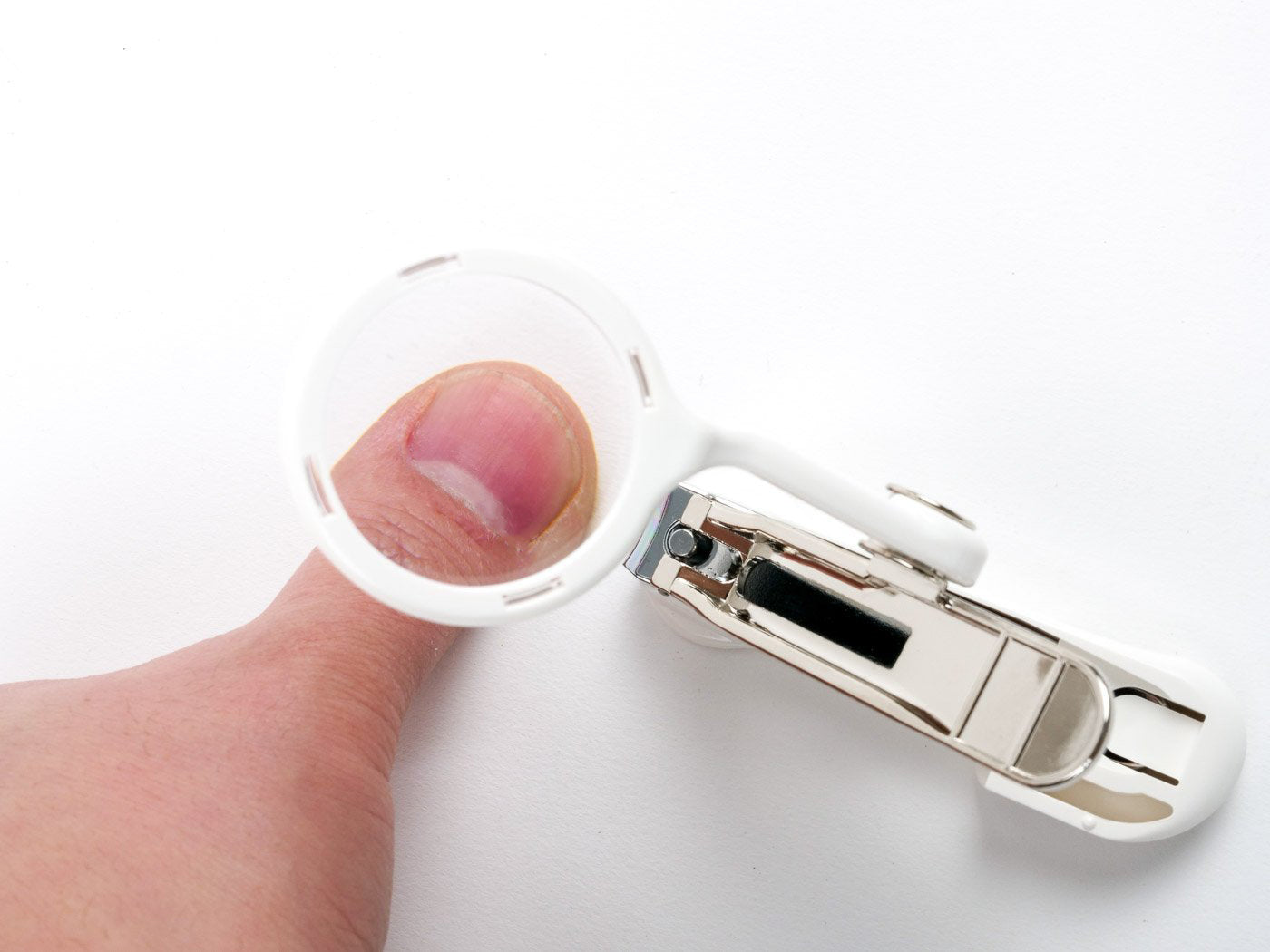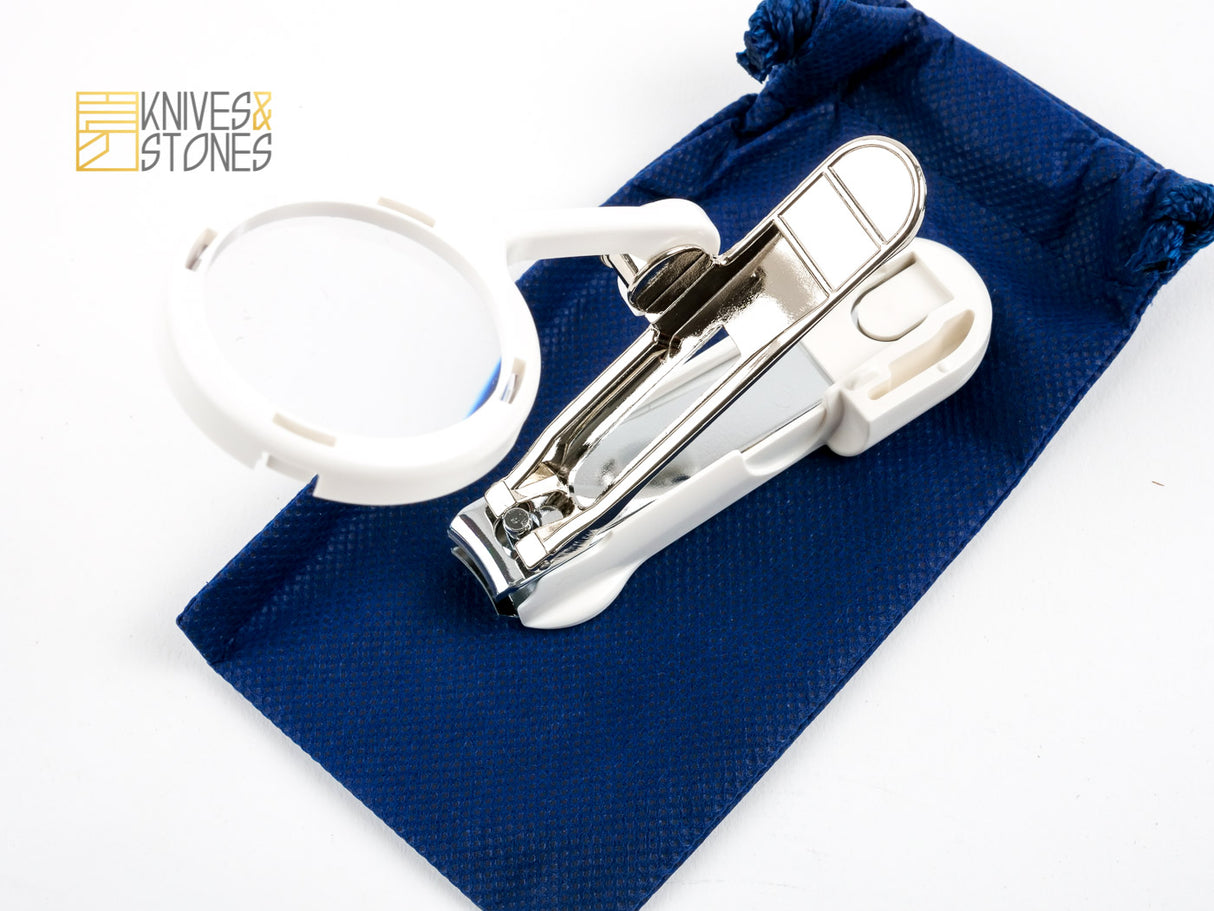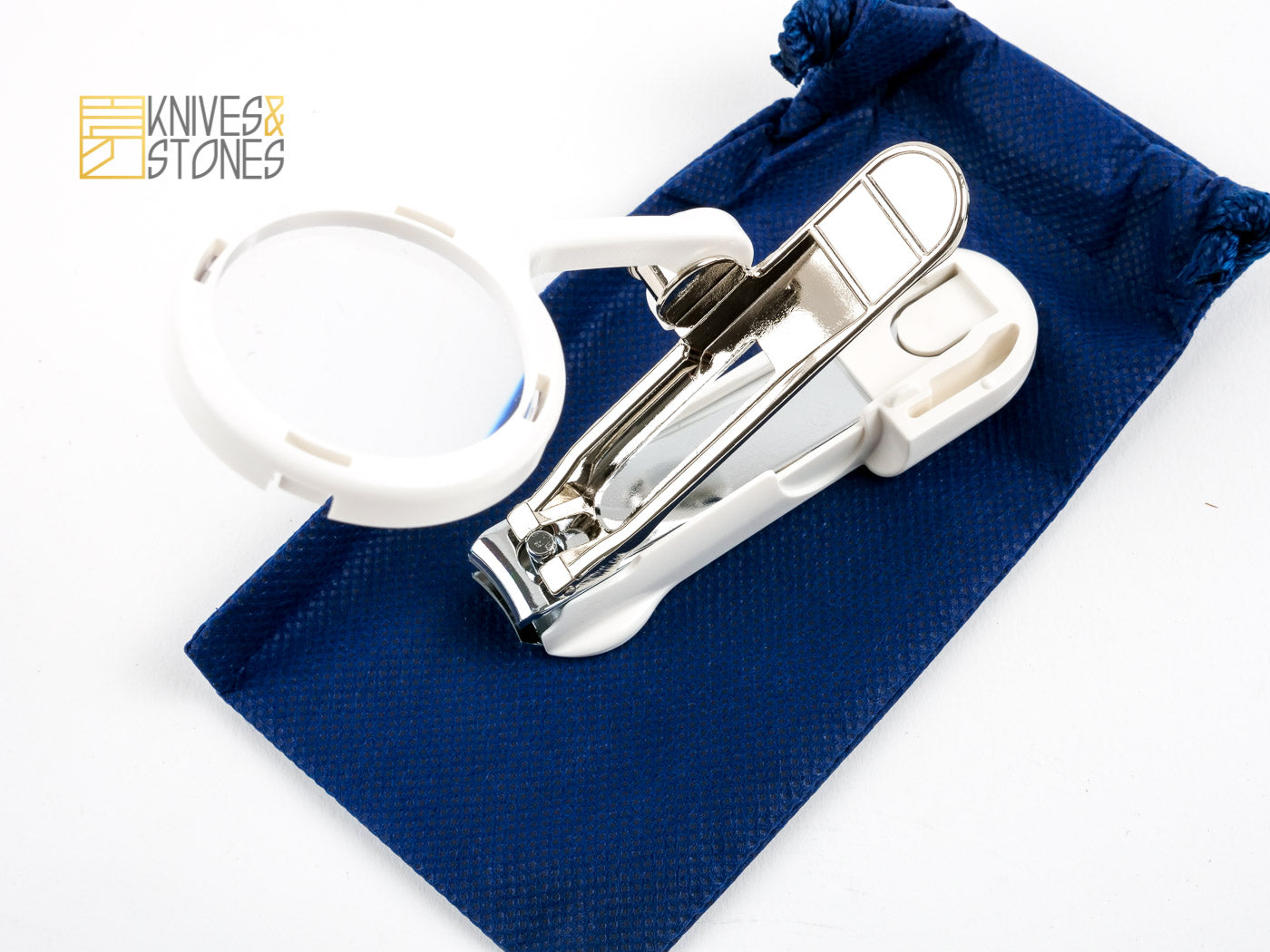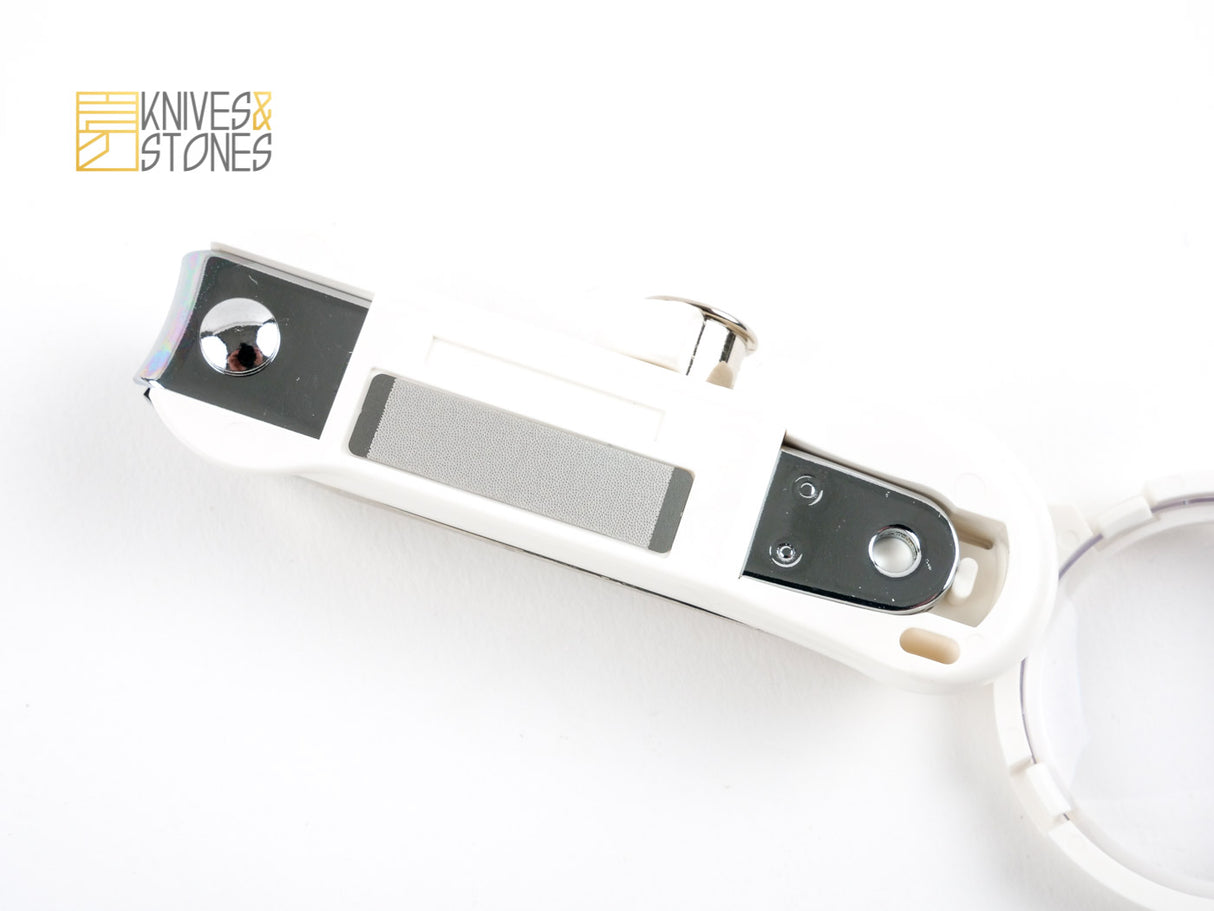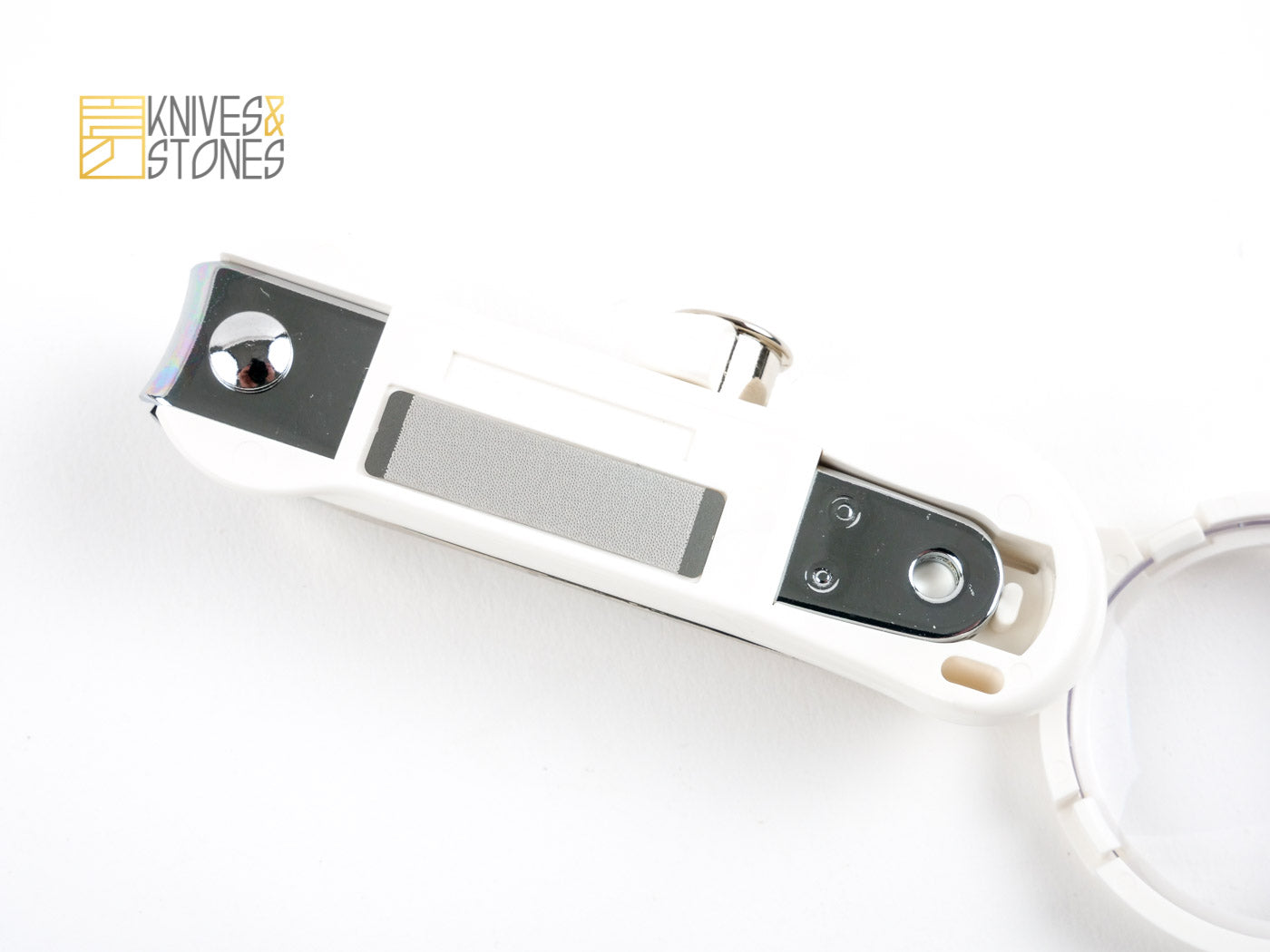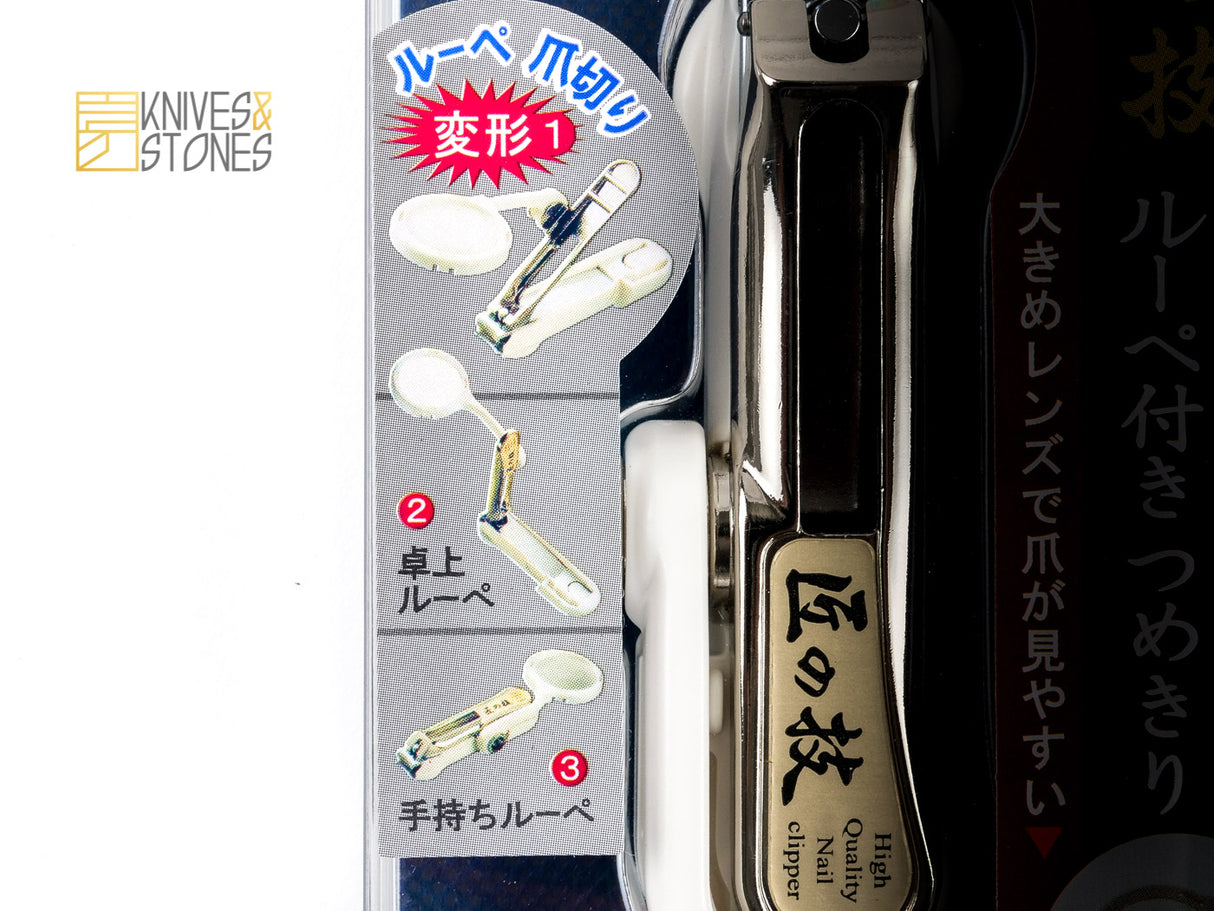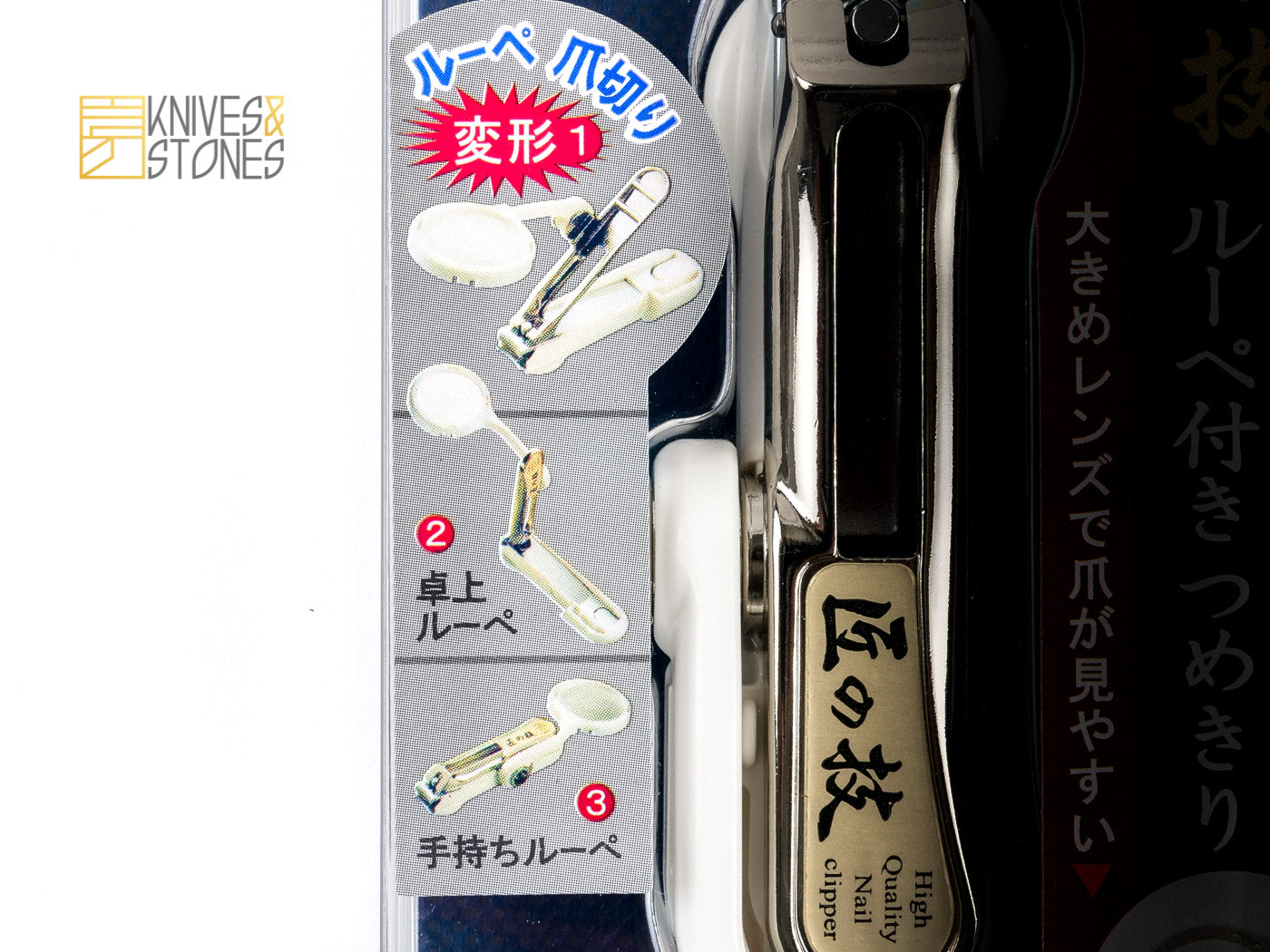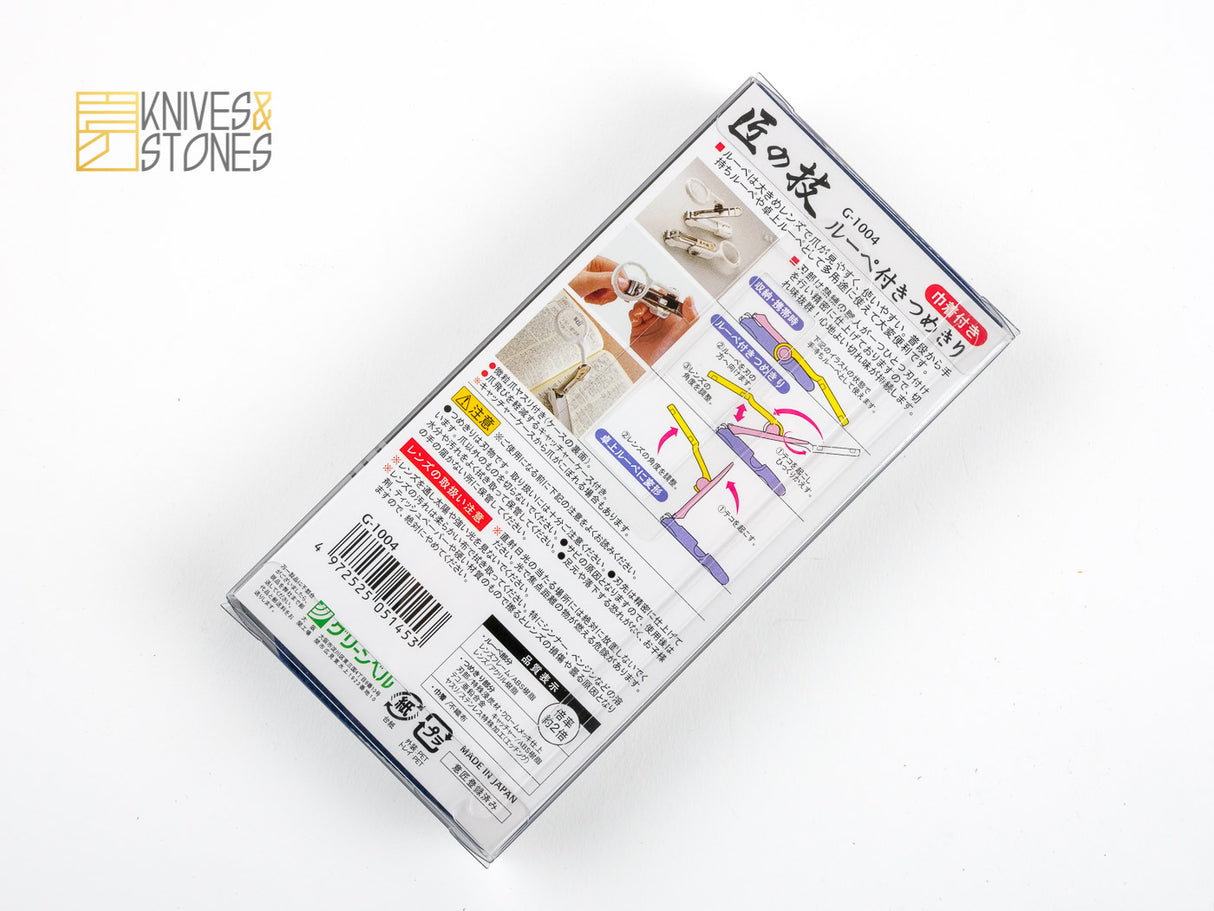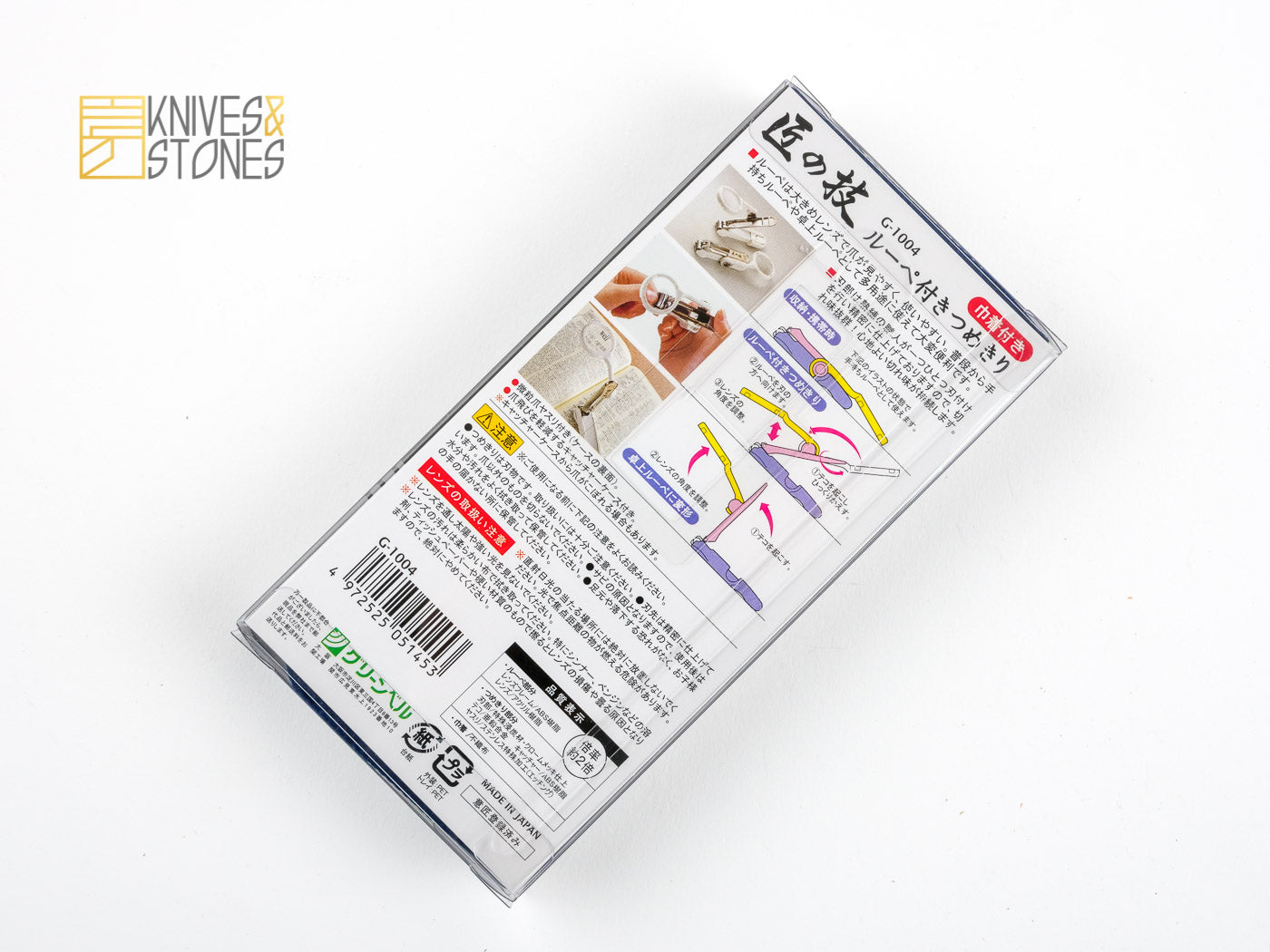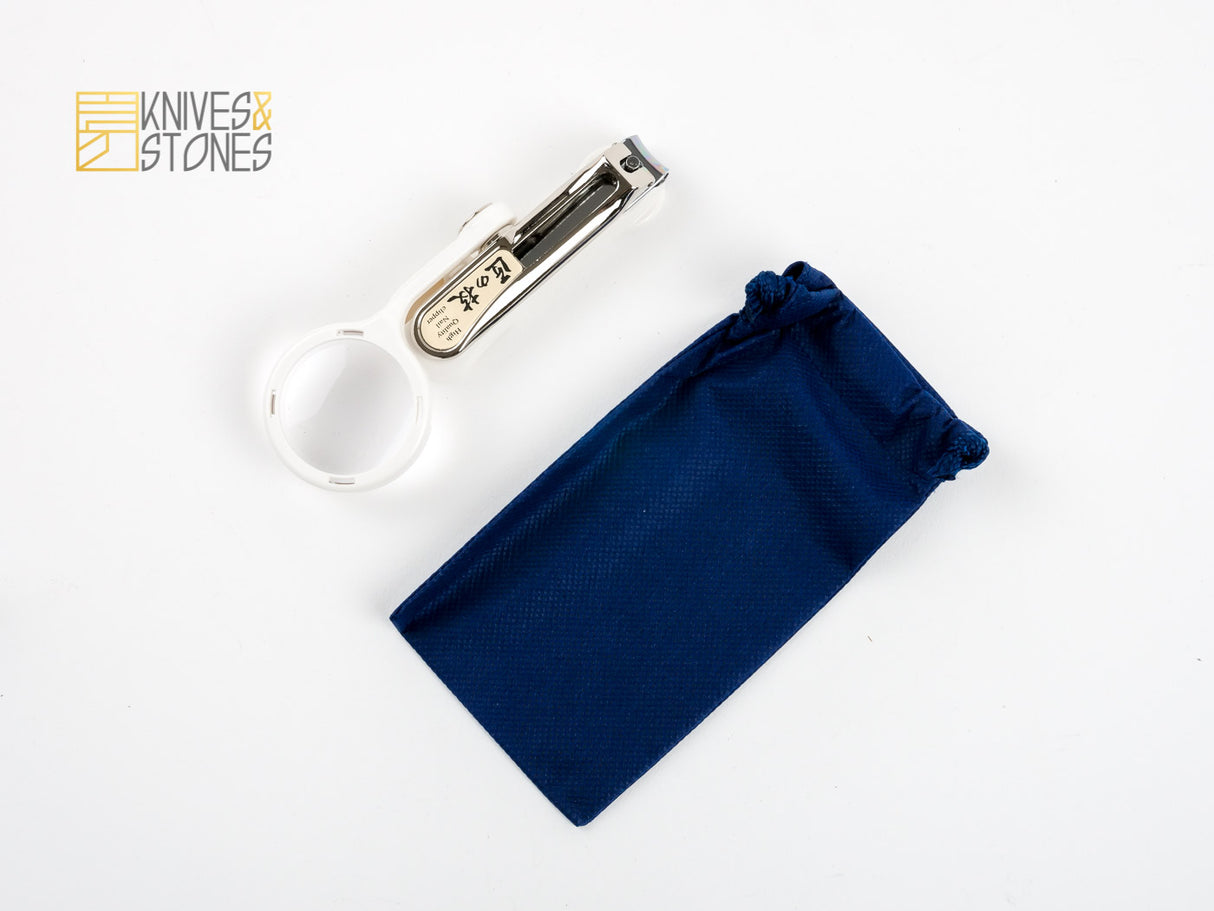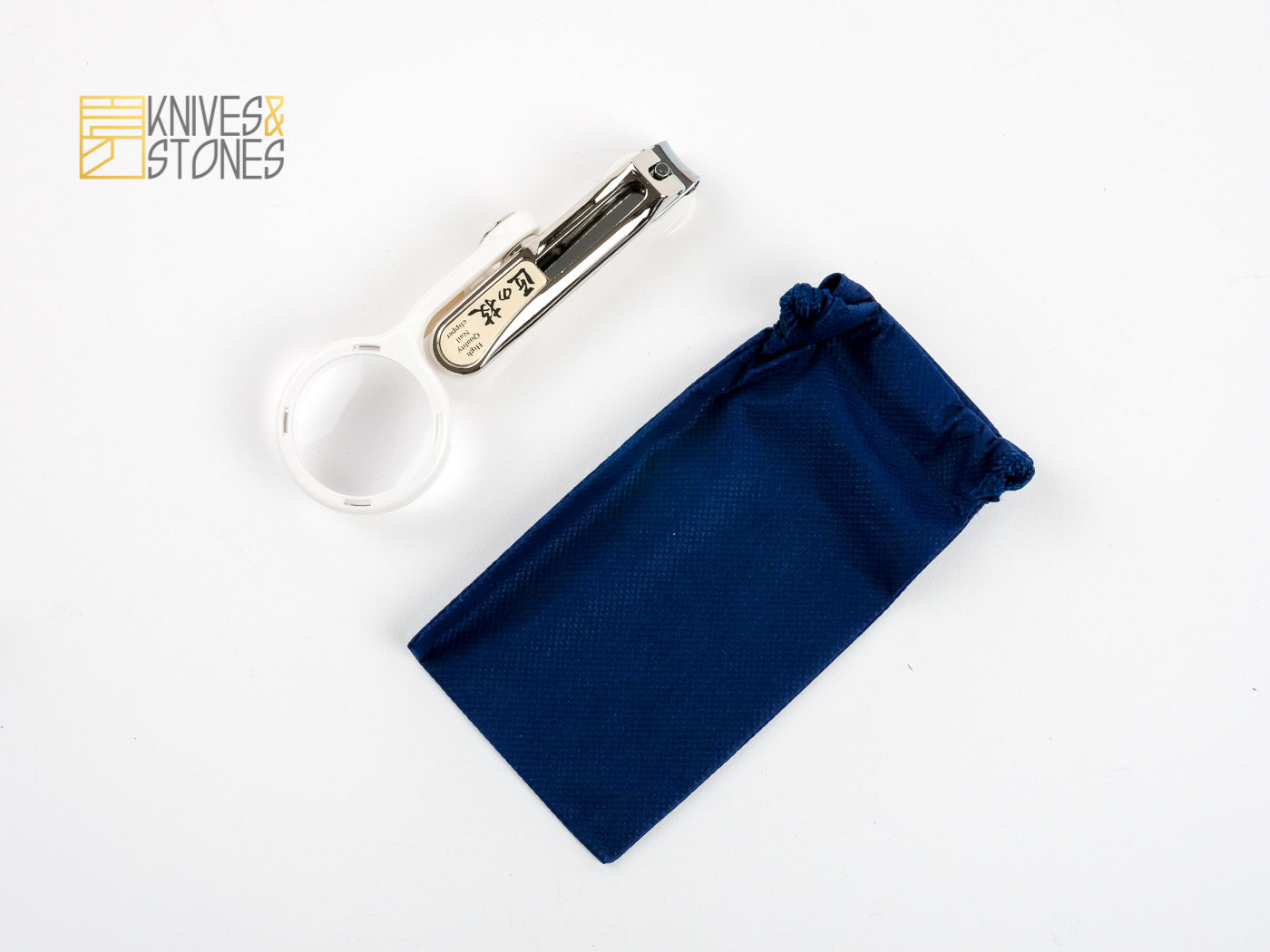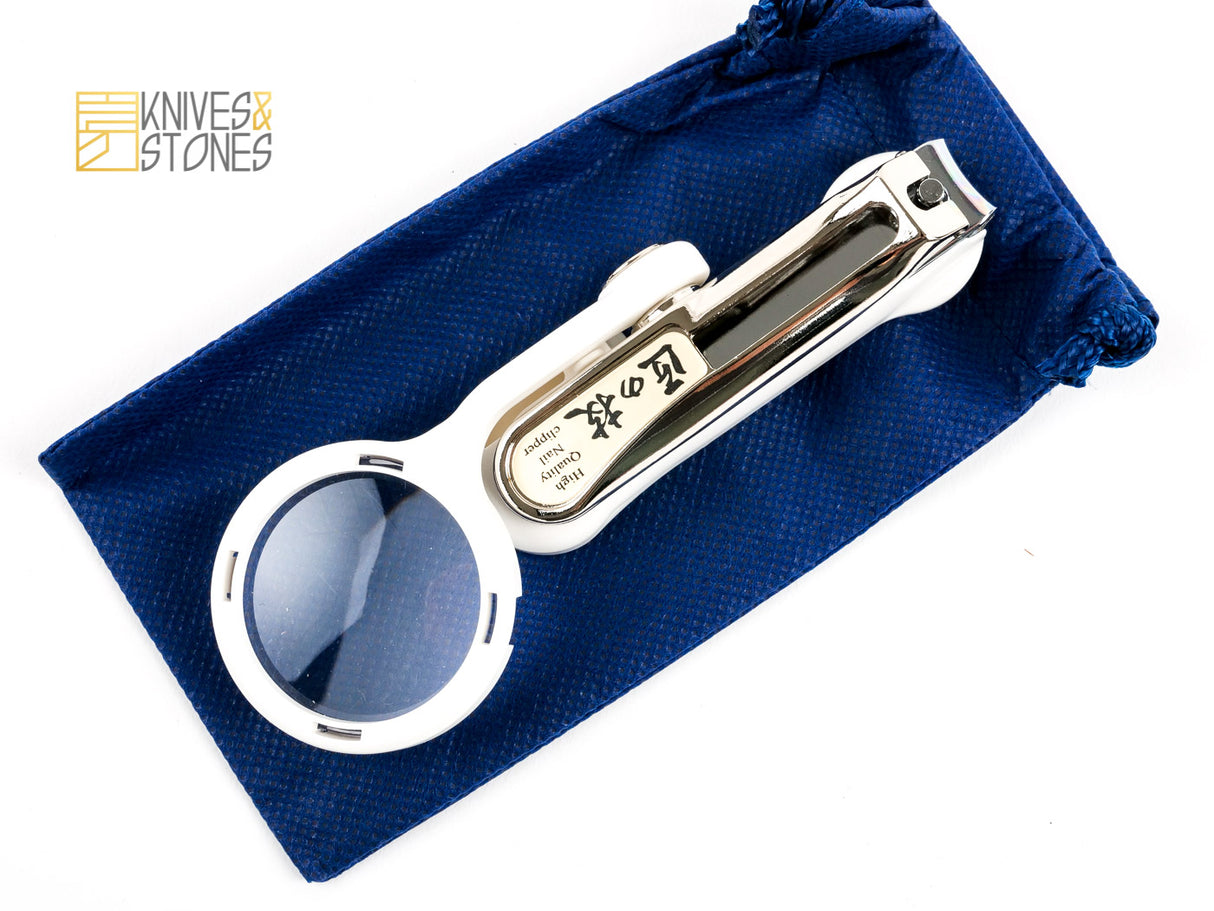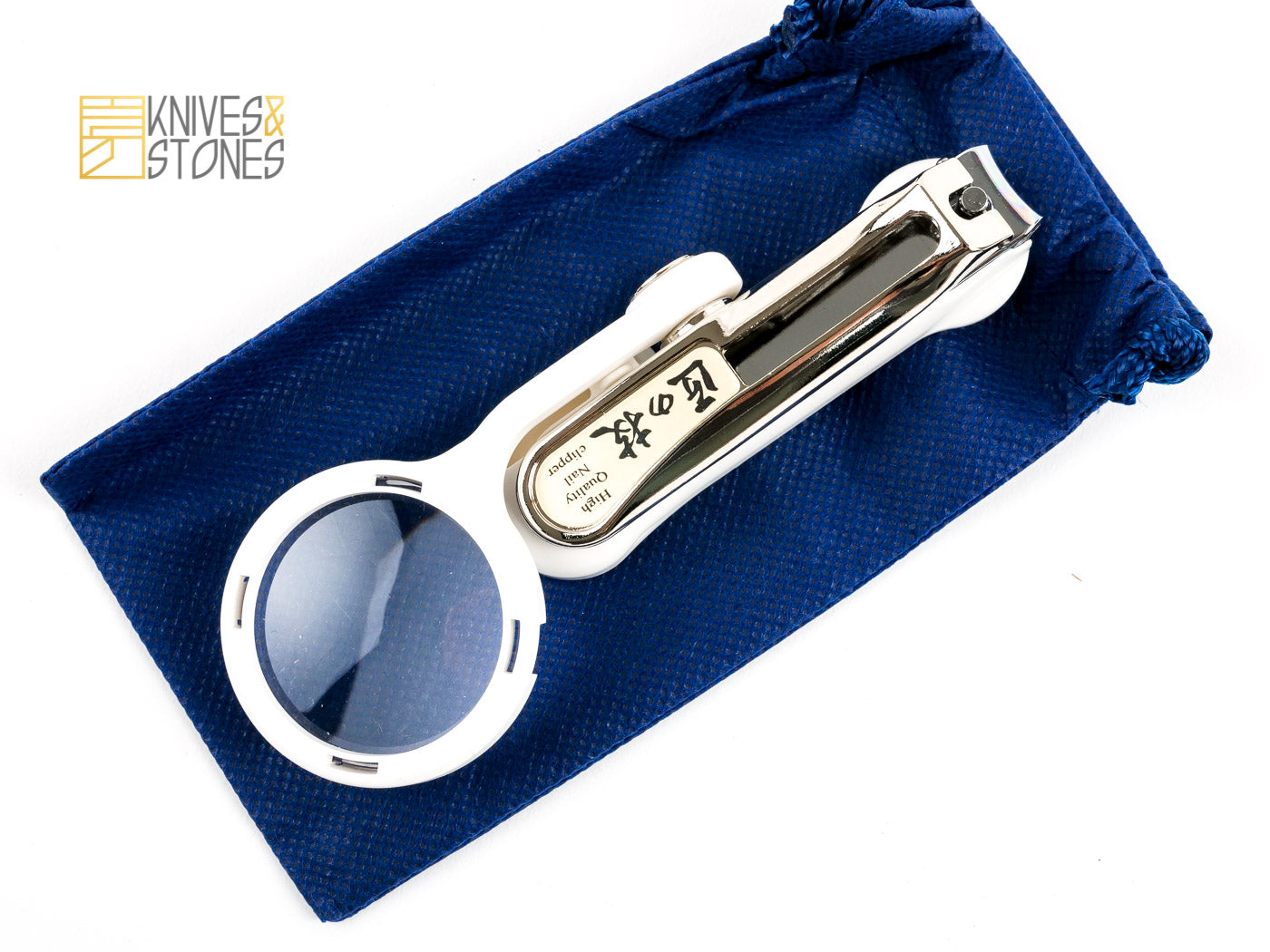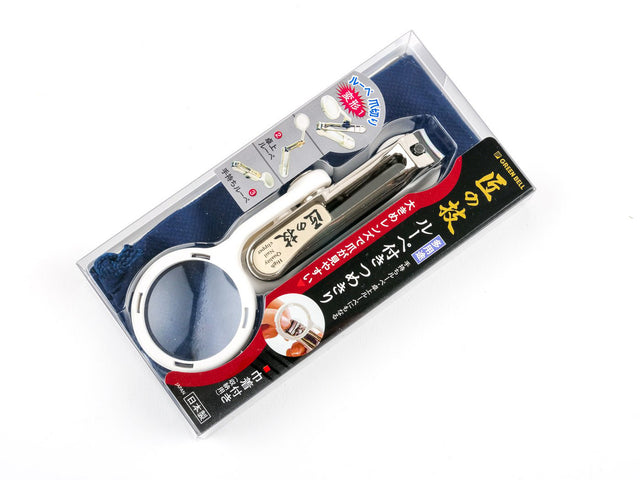GreenBell | SKU:
GB-G1004
GreenBell Takumi No Waza Nail Clipper with Magnifying Glass G-1004
$33.00
Unit price
/
Unavailable
Tax included
Shipping calculated at checkout.
GreenBell Takumi No Waza Nail Clipper with Magnifying Glass G-1004 is backordered and will ship as soon as it is back in stock.
Couldn't load pickup availability


This excellent nail clipper with a lens is suitable for people who can not easily read small print.
The magnification of the lens is 2X.
The lens is made of Acrylic resin, so there is no risk to crack.
The magnification of the lens is 2X.
The lens is made of Acrylic resin, so there is no risk to crack.
Product number: G-1004
Size: L125 mm 58 g
Materials:
-
Lens frame&Catcher-ABS resin
-
Lens-Acrylic resin
-
Edge- Carbon steel,Chrome plating
-
Lever-Zinc alloy
-
File-Etched stainless steel
- Drawstring bag-Non-woven fabric
========
ABOUT GREEN BELL
GreenBell is arguably one of the most famous Japanese manufacturers in grooming and sharp kitchen tools. The company is based in Seki Japan, the most famous sharp tools center in Japan. The Takumi-no-waza nail clippers are sold in most of the souvenir shops,
I also discovered GreenBell via their nail clippers when I was visiting Japan for the first time, and the clipper that I bought was so sharp and lasts forever! I am very greatful that I can introduce their products to you.
=========
The home city of renowned craftsman, Seki City in Gifu Prefecture. Even today, experienced craftsmanship is still being passed down.
In ancient times, swordsmiths moved to Seki City during the Muromachi Period and the history of Seki blades goes back to the beginning of making bamboo swords. With the motto, “No snapping, No bending, and Cut well”, the name has spread across the country and been supporting the Japanese industry of blades for over 700 years. The industry of blades in Seki City began with swordsmiths. The products made by years of tradition and modern technology has a variety of items such as kitchen knives, scissors, razors, nail clippers, knives, and so on. The power of the brand with an origin in blades, which exports to the world, still wins admiration widely now.
In ancient times, swordsmiths moved to Seki City during the Muromachi Period and the history of Seki blades goes back to the beginning of making bamboo swords. With the motto, “No snapping, No bending, and Cut well”, the name has spread across the country and been supporting the Japanese industry of blades for over 700 years. The industry of blades in Seki City began with swordsmiths. The products made by years of tradition and modern technology has a variety of items such as kitchen knives, scissors, razors, nail clippers, knives, and so on. The power of the brand with an origin in blades, which exports to the world, still wins admiration widely now.
Made In Seki
World-class blades from Seki City
As “The three major origins of blades in the world”, Seki City in Japan is ranked with Solingen in Germany and Sheffield in England. For the quality supported by history and traditions, Seki City gains a high reputation both home and abroad. Seki City that has developed as a world brand has three important conditions for making blades. One is the origin of abundant water in the River Nagara, another is the coalmine for hardening, and the last is its reddish soils. The industry is modernized now, but the rich natural environment such as water, mountains, and soils is still supporting the industry of blades.
As “The three major origins of blades in the world”, Seki City in Japan is ranked with Solingen in Germany and Sheffield in England. For the quality supported by history and traditions, Seki City gains a high reputation both home and abroad. Seki City that has developed as a world brand has three important conditions for making blades. One is the origin of abundant water in the River Nagara, another is the coalmine for hardening, and the last is its reddish soils. The industry is modernized now, but the rich natural environment such as water, mountains, and soils is still supporting the industry of blades.
Tradition
With the inheritance of long standing traditional techniques.
The blades of Seki City are known as “No snapping, No bending, and Cut well” and the representatives of swordsmiths during the Age of Civil Wars were the Kanemoto, Kanesada, and Kanefusa. They left many famous items in our time. Especially, the blades, which were appreciated by many military commanders such as Shingen Takeda and Hideyoshi Toyotomi, have a high reputation as the best goods which cut clearly the best. The skill which created such a breathtaking edge has been passed down from generation to generation in Seki City and as the city of blades which has the highest blade production in Japan, Seki City is still often acclaimed as best in the world. Also, historic “Seki City traditional Japanese forging” has still been taken over and keeping to the skill and tradition by swordsmiths in Seki.
The blades of Seki City are known as “No snapping, No bending, and Cut well” and the representatives of swordsmiths during the Age of Civil Wars were the Kanemoto, Kanesada, and Kanefusa. They left many famous items in our time. Especially, the blades, which were appreciated by many military commanders such as Shingen Takeda and Hideyoshi Toyotomi, have a high reputation as the best goods which cut clearly the best. The skill which created such a breathtaking edge has been passed down from generation to generation in Seki City and as the city of blades which has the highest blade production in Japan, Seki City is still often acclaimed as best in the world. Also, historic “Seki City traditional Japanese forging” has still been taken over and keeping to the skill and tradition by swordsmiths in Seki.
Payment & Security
Payment methods
Your payment information is processed securely. We do not store credit card details nor have access to your credit card information.
